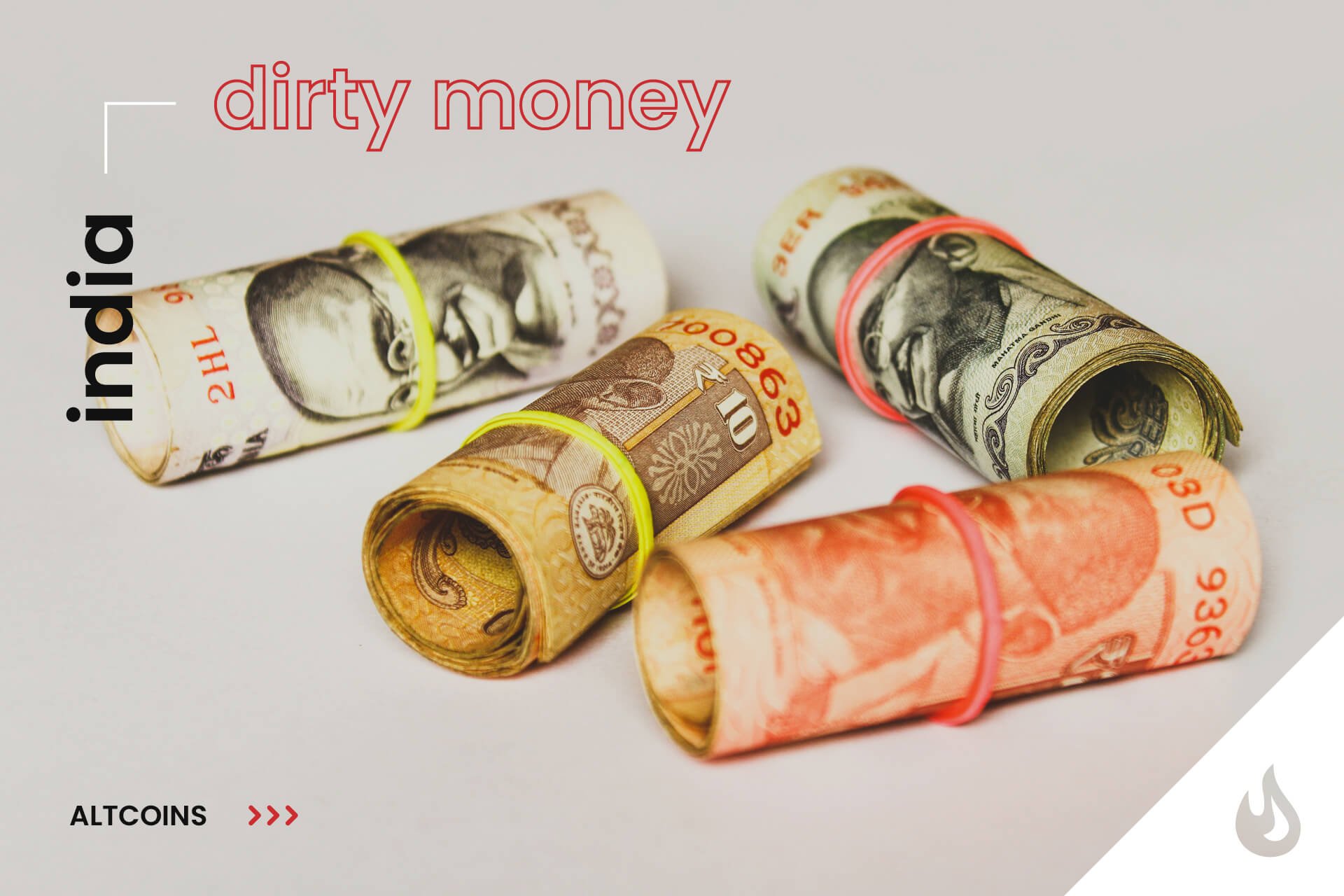
- The anonymity/pseudo-anonymity of blockchain transaction makes digital asset perfect for illegal transactions
- As the use of cryptos for dirty money movement increases, countries are coming up with regulatory guidelines to check their use
- Crypto exchanges in India have come up with unique KYC guideline to check the use of dirty money
Cryptocurrencies were created to solve some underlying problems in the traditional banking sector. As such, the disparity between both industries is very large.
For example, while traditional financial assets are held by the banks, digital assets are held by the owner in cold wallets. This gives holders of digital assets the leverage to do a lot of things with their coins, sometimes illegal things.
The Crypto Industry and Dirty Money
Crypto transactions are structured to be different from those of traditional banks. Transactions performed on blockchains are encrypted with public-key cryptography. The cryptography masks the real identities of the individuals behind the transactions, making crypto transactions pseudonymous.
Sponsored
Because of the anonymity, Bitcoin and other digital assets are exploited by criminals for money laundering and financing other criminal activities. An example is the events of January 6.
The FBI has released a report stating that the agency is currently probing whether foreign governments, groups, or individuals funded Capitol rioters using Bitcoin.
In September 2020, the French police arrested 29 people in a largescale operation to break a complex scheme financing Islamist extremists in Syria through the use of cryptocurrencies.
Sponsored
Other countries have/are putting in place different measures including bans and new regulatory guidelines to curb the dirty money around cryptos.
How India’s Crypto Exchanges are Solving the Problem
Although India lacks a structured regulatory guideline, India’s crypto exchanges are deploying unique KYC and anti-money laundering procedures to tackle some of the loopholes in the ecosystem.
Nishal Shetty, the CEO of India’s largest cryptocurrency exchange, WazirX, has explained that for a transaction to be completed, the user must provide a valid ID and address proof like other online payment agencies.
Shetty also notes that money for a transaction has to come from the concerned user’s bank account and not some third-party account.
On the Flipside
- Countries like France have taken a different approach to solve the problem of dirty money.
- To solve this problem, the French government has enforced regulations that will effectively strip crypto transactions of their anonymity.
- Pakistan outrightly banned the use of Bitcoin within its borders. Cryptocurrencies are still considered illegal in the Middle East country.
Penny Drop Verification Method
Another method used by exchanges is known as penny drop. Exchanges send a penny’s worth of crypto to the accounts of their users in order to retrieve account details.
This method reveals the account holder’s name as registered with the bank, to the transferor. Many large exchanges follow a roughly similar KYC system, with more rigorous checks for corporates.
In Conclusion
Although the approach adopted by crypto exchanges in India may not work throughout the world, it has the desired results in the region.
Crypto professionals have explained that to further the risk of ending up with dirty money or bitcoin from criminals, investors need to transact through exchanges rather than peer-to-peer traders.
